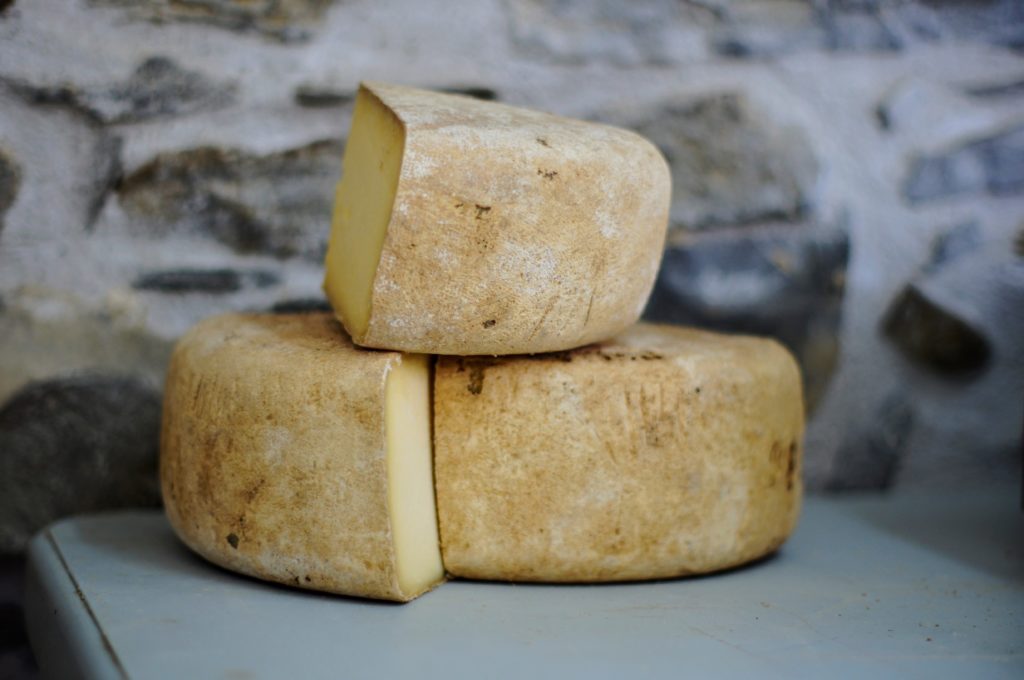All fields are required
Posted in Food Safety,Listeria,Our Blog,Outbreaks & Recalls on January 28, 2019

Food recalls in the United States have slowed to a crawl as the federal government continues to grapple with the effects of the shutdown. In Canada, however, funding for food regulation has been flowing regularly, and food recalls have been coming down apace. One that broke last week which caught our eye here at MakeFoodSafe was a recall of Pecorino Stagionato cheese in Quebec. The cheese was distributed in the Canadian province under the brand name Bio Busti. Authorities opted to recall the cheese after seeing evidence that it may have been contaminated with the foodborne pathogen Listeria Monocytogenes.
The products were sold at a Quebecois natural foods store called Marches Tau. They were sold at locations in Blaineville and Saint-Léonard, a suburb and neighborhood of Montreal, respectively.
The pecorino was made with raw milk — a controversial ingredient that’s commonly linked to outbreaks of listeria and other foodborne pathogens. Most milk that’s commercially available in the United States and Canada has been heated to a point where any pathogens inside are deactivated. This process is called pasteurization, as you likely know, and it’s generally regarded as a key part of the process of ensuring that milk is safe to drink.
Not everyone is on board with pasteurization, however. A growing movement of people are calling the wisdom of exposing milk to such high temperatures into question. They think that the process of pasteurization has significant downsides — that the high heat denatures nutrients and other important components of the milk which would otherwise be preserved, thus robbing it of some of its nutritional value.
Furthermore, some of those who doubt the wisdom of pasteurization point to evidence that exposure to pathogens at low levels trains the immune system to recognize those pathogens. Additionally, a healthy collection of microflora and microfauna in the gut may aid in digestion and create an environment in which it’s more difficult for infections to take root. By that logic, pasteurization could be a bad thing. Because it eliminates all of the bacteria that live in milk, good and band, pasteurization might leave us with milk that contributes nothing to our gut bacteria and doesn’t provide any useful “information” to our immune system by exposing it to low levels of potentially harmful bacteria.
That, more or less, is why people drink raw milk. They think that it has more nutrients, and they believe that they benefit overall from food products that are haven’t been completely scrubbed of microbes.
Unfortunately, raw milk and products made from raw milk have also been implicated in a number of pathogen outbreaks over the past several years. More than a dozen people fell with a drug-resistant strain of Campylobacter jejuni after drinking raw milk in Colorado in 2016. In 2018, 12 children fell ill after drinking raw milk at the French Broad Farm in Tennessee, and four became so sick that they developed kidney failure. That echoed an incident at the Stroupe farm in Missouri where E. coli laced raw milk sent 14 people to the hospital, two of whom were children. Five more children were sent to the hospital after contracting E. coli infections from raw milk that same year.
You may have noticed a pattern in the incidents described above. It’s not a coincidence. Like the elderly or those immunocompromised by other medical conditions, children are not equipped with the robust immune defenses that healthy adults have. They’re more susceptible to infection by pathogens found in food, and they’re more susceptible to those infections spiraling out of control.
In the case of E. coli, an out-of-control infection can lead to a condition called hemolytic uremic syndrome, or HUS. HUS causes the kidneys to become overpowered and eventually shut down. In many cases, patients have to be put on dialysis in order for their blood to be filtered, as their kidneys are no longer equipped to do so on their own. The condition often leaves the victim with effects that linger afterwards and are sometimes permanent. It can also kill.
Listeria, the bacteria found in the Bio Busti cheese, is similarly dangerous. It poses a particular threat to pregnant women, who often suffer from complications or miscarry after contracting the bacteria. Listeria can also cause the tissues around the brain and the spine to swell up in particularly intense cases and is particularly dangerous to the very young, the very old, and the immunocompromised.
Here’s the upshot of all this: you’re free to believe in the health benefits of raw milk. If you’re a healthy adult with a fully functioning immune system, the decision to drink raw milk or consume products made with it is between you and your conscience. If you’re charged with the feeding and care of children or other individuals who don’t have a fully functioning immune system, however, the balance of evidence indicates that feeding them raw milk or raw milk products can put them at very serious risk. They’re the ones who stand to become very sick should that raw milk be contaminated, and they may suffer permanent health problems or even die because of the infection. It’s happened before.
Please be careful out there, and do your research. Also, you’d do well to avoid the brands of Bio Busti identified by the Canadian Food Inspection Agency, and to chuck out any product that you might have in your pantry that’s covered by the recall.
By: Sean McNulty, Contributing Writer (Non-Lawyer)